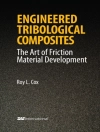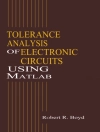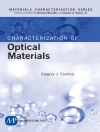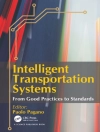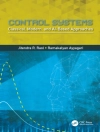This book explores various unique characteristics of graphene quantum dots and their potential applications in a variety of fields. It provides an in-depth investigation of the present state of the art in graphene quantum dots, composites, hybrid structures, and other related topics. Various topics covered in this book are synthesis and characterization of graphene quantum dots, modelling and simulation, nanoscale applications nanosensors, bio-nanosensors, energy applications, industrial applications, healthcare applications, textile applications, and many more. Given the contents, this book is highly useful for material scientists and also the researchers and professionals in the areas of chemistry and physics.
विषयसूची
History and Development of Carbon Materials.- Roadmap: From Carbon to Graphene Quantum Dots.- Introduction to Graphene Quantum Dots.- Synthesis of Graphene Quantum Dots and Their Composites.- Biomass-based Graphene Quantum Dots.- Characterization Techniques for Graphene Quantum Dots.- Physics and Chemistry of Graphene Quantum Dots.- Modeling and Simulation Techniques for Graphene Quantum Dots.- Graphene Quantum Dots in Nanoelectronics Application.- Influence of Graphene Quantum Dots in Nanosensors.- Contribution of Graphene Quantum Dots in Bio-nanosensors.- Graphene Quantum Dots in Energy Sectors.- Role of Graphene Quantum Dots as Catalyst.- Industrial Application of Graphene Quantum Dots.- Tailor-made Graphene Quantum Dots for Textile Application.- Healthcare Application of Graphene Quantum Dots.- Application of Graphene Quantum Dots in Environmental Field.- Biological Application of Graphene Quantum Dots.- Real-life Applications of Graphene Quantum Dots.- Future Research and Case Study on Graphene Quantum Dots.- Life Cycle Analysis of Carbon-based Nanostructured Materials.- Biocompatibility and Toxicity of Graphene Quantum Dots.
लेखक के बारे में
Dr. N. Manjubaashini is currently working as a research associate under Department of Biotechnology at National Centre for Nanoscience and Nanotechnology, University of Madras, Chennai, India. She obtained her Bachelor of Engineering (EEE) and Master of Technology (M.Tech.) degrees from Anna University, India, in 2012 and 2014, respectively. She was a senior research fellow in the Council of Scientific and Industrial Research programme when she earned her Ph.D. in Technology from Anna University, India, in 2019. Her major research focuses on nanostructured materials for chemical and biological analyte sensing, and Bionanocomposites for healthcare and environmental applications. She has published more than 20 research articles and 5 review articles in peer-reviewed international journals, 2 authored textbooks, and 1 book chapter. She is a life member of Society of Biomaterials and Artificial Organs India (SBAOI).
Dr. T. Daniel Thangadurai is a professor of Chemistry and the head for the Centre for Nanoscience and Technology at KPR Institute of Engineering and Technology, India. He received his Ph.D. in Chemistry from Bharathiar University, India, in 2001. He has six post-doctoral experiences at KAIST, POSTECH, and CNU of South Korea, CNRS-UMR 8601 of France, and USM of Malaysia, during the period 2001–2010. Subsequently, he worked as an assistant professor at Kook-Min University, South Korea (2010–2013). He has published more than 100 research articles in high impact journals, hold copyright of one Indian patent, authored 2 textbooks, and 3 book chapters. Carbon-based nanomaterials, biological applications of nanostructured materials, and chromofluorogenic sensors are the area of his research interest.
Dr. D. Nataraj is currently holding the position of Professor at Department of Physics, Bharathiar University, India. He obtained his Ph.D. degree in Physics in the year 2001 from Bharathiar University, India. He did his postdoctoral research work at NIAIST, Hokkaido, and RCIQE, Hokkaido University, Japan, as a STA and COE fellow during 2001–2003 and 2003–2005, respectively. His research areas include understanding the photophysics of quantum nanomaterials and understanding the dynamics of excitons. He has published more than 75 research articles and holding rights for two Indian patents. He is a life member at Luminescent Society of India and Magnetic Society of India.
Professor Sabu Thomas is the director of the International and Interuniversity Centre for Nanoscience and Nanotechnology, Mahatma Gandhi University, Kottayam, Kerala, India. He was the former vice chancellor of Mahatma Gandhi University, Kottayam, Kerala, India. . Prof. Thomas is an outstanding leader with sustained international acclaims for his work in nanoscience, polymer science and engineering, polymer nanocomposites, elastomers, polymer blends, interpenetrating polymer networks, polymer membranes, green composites and nanocomposites, nanomedicine, and green nanotechnology. In collaboration with India’s premier tyre company, Apollo Tyres, Professor Thomas’s group invented new high-performance barrier rubber nanocomposite membranes for inner tubes and inner liners for tyres.



